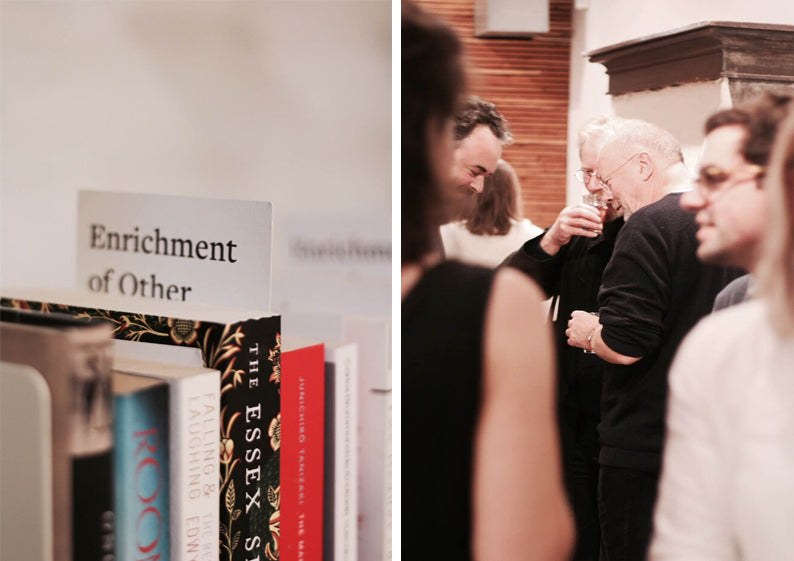


After a season of book sharing, we brought together four authors Sarah Hall, Deborah Levy, Olivia Laing and Jon Day to discuss the literature they've been enriched by and to hear about their own motivations and inspirations. The conversation was intriguing just as you would expect from a panel of authors who have not only been shortlisted for the Man Booker Prize, but acted as judges for it too.
All writing is, in some form, a conversation that you're having with another Deborah Levy.
Levy, who writes in a shed at the bottom of the garden, is a playwright, novelist and poet. Her work has been staged by the Royal Shakespeare Company, and two of her novels Swimming Home and Hot Milk were shortlisted for the Man Booker.Levy spoke brilliantly about how the writing process itself can be enriching, describing the pleasure one can take in shaping something beautiful and the joy of finding a voice and knowing that others are listening to it. She listed The Philosophy of Andy Warhol: From A to B and Back Again and James Baldwin: The Last Interview as books that continue to inspire. When asked about a book that had left an impression on her she recalled the image of Dorothy clicking her ruby red slippers in The Wizard of Oz and how this had stayed with her from childhood, conjuring a deep sense of home and belonging.
Are we reading for solutions? Are we reading for consolation? Or are we just wanting the sense that others are asking what we're asking? Sarah Hall.
Hall's novel The Electric Michaelangelo was shortlisted for the Man Booker and this year she swapped sides, becoming one of the judges. Her short stories are as remarkable as her novels and have won many accolades. The book that enriched her younger self was Z for Zachariah by Robery C. O'Brien. As a teenager, growing up in the rural Lake District, Hall spoke about how it was hugely exciting to encounter a female protagonist whom she could associate with and who had agency. The energy of this character influenced her own writing; in all her work she seeks to create female figures that are capable or can become capable when they need to be.
There's the book itself, there's the place it inhabited in my life, and on it goes, to the next person, moving through time Olivia Laing.
Laing is a writer and cultural critic whose work often asks us to think about the role art or literature might play in our lives, and why it matters. She recalled how, as a child, she spent hours travelling between the houses of her parents (they were divorced and lived far apart) and how story tapes, in particular The Wind in the Willows, had played such a vital role in these journeys. It was as though the family adopted the story as a family idiolect through which to communicate remembering phrases off by heart and using phrases out of context to prompt laughter. Through the narrative they created their own little fictional landscape that they could all share showing the enriching powers of literature as a communal resource for families and friendships.
I think it all comes back to that phrase by C.S. Lewis We read to know we are not alone.' Jon Day
Day is a writer, critic, lecturer and past Man Booker judge. He acted as the chair in our conversation with authors, prompting and steering them to reflect on their role as both writer and reader. He observed how the gift of a book always involves three people the writer, the reader and the recipient this season we are glad to have celebrated all three!
The talk was held in September at our Notting Hill Shop, with the full ticket cost being donated to the charity Give a Book. We have twelve shops across the country, and regularly hold all sorts of events from literary evenings through to block printing workshops.Find out more about our forthcoming shop events.
Images by Nicole Betts.Words by Emily Mears. Film by Will Hannan




Add a comment